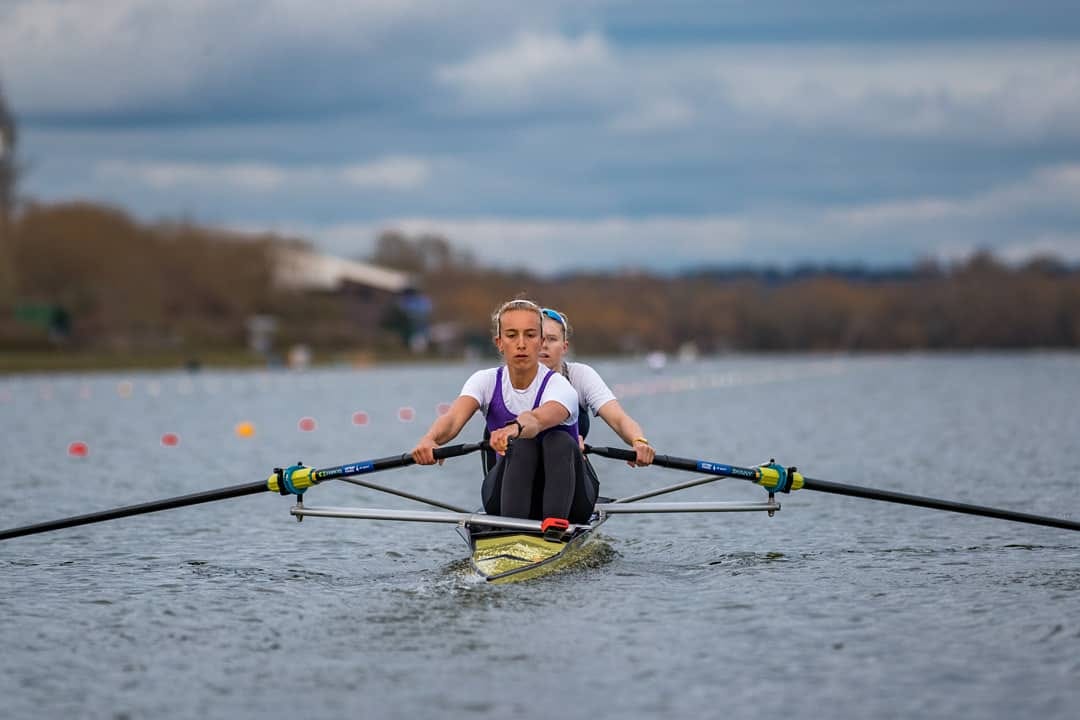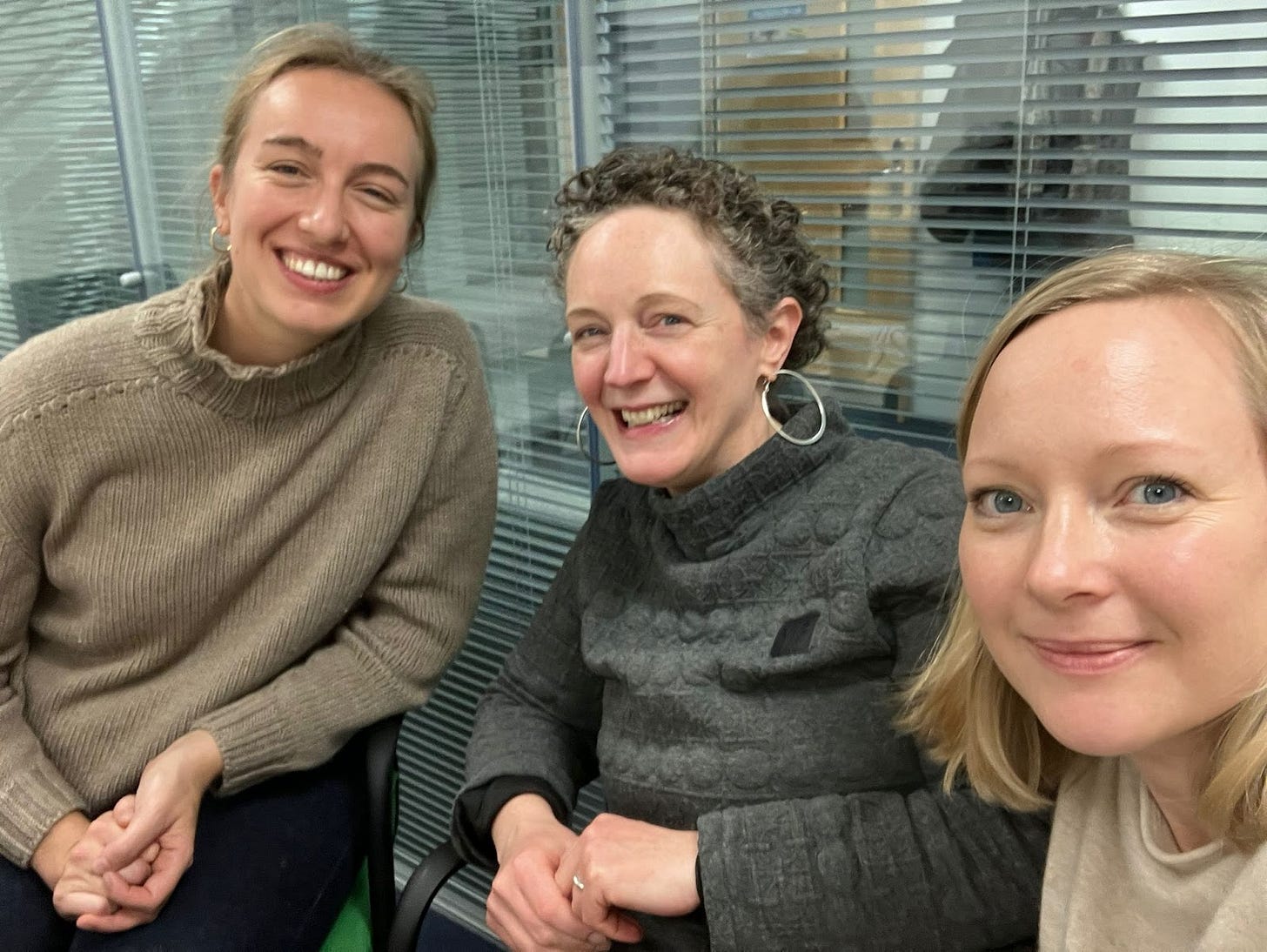From Olympic rowing to Long Covid advocacy
Why I've signed the #ThereForME open letter to Wes Streeting
This week’s post is from Oonagh Cousins, a former Team GB rower and now a Long Covid researcher and advocate. Oonagh is a volunteer for Long Covid Support and an enthusiastic member of the #ThereForME team.
Last week #ThereForME launched an open letter to Wes Streeting from Long Covid and ME patients - and the people caring for them - calling for a commitment to an NHS that’s there for Long Covid and ME. So far well over one thousand people have signed the letter, which is still open for signatures. I’m proud to consider myself among them. This is why.
My story
Credit: British Rowing
In March 2020, amid growing concerns worldwide about the coronavirus, my teammates and I on the British Rowing team were in our final week of testing for selection for the Tokyo Olympics. Once the week concluded, we gathered on the steps of our training centre for selection to be announced. I had been given a seat in the women’s eight.
That week was consequential to me for other reasons, too. I had come down with what seemed like a mild cold and when testing was finished, I asked my coach for a few days off. That 'cold' turned out to be acute Covid-19, which subsequently developed into Long Covid.
Credit: All Mark One
Since then, I have endured waves of varying symptoms and intermittent recovery periods. The first 6-9 months were dominated by crushing symptoms that left me unable to manage more than a few hours of basic tasks without becoming more ill. I gradually improved. After a year and a half of recovery, I returned to training. I rejoined the GB team with the hope of competing at Paris 2024. However, with the extra training load of the GB program, I quickly hit a ceiling and crashed hard. I spent most of 2023 very unwell again and as a result, I made the difficult decision to retire from professional sport.
I am now working at the University of Oxford as a visiting research fellow, doing social science research on Long Covid. I am also a volunteer in various capacities for the charity Long Covid Support.
Credit: Dr Maaret Jokela-Pansini
With my research team at the University of Oxford (L-R: Oonagh Cousins, Prof Beth Greenhough, Dr Maaret Jokela-Pansini).
Throughout the past four years I have used my platform as an athlete to raise awareness of the condition and advocate for better care. I have given interviews on various platforms to try to combat the many cruel misconceptions that exist. For example, the idea that the condition is just a bit of ‘tiredness’ or that it only affects ‘lazy people’ who don’t look after their health. My story shows that anyone, regardless of their age, previous fitness or health can suffer from debilitating Long Covid.
And yet, in many ways, my position affords me advantages that others don't have. I have access to private healthcare and support from private doctors who take my symptoms seriously. I have been able to take years off work, financially supported by British Rowing, and I have no caregiving responsibilities. This has allowed me to focus solely on my health for a significant length of time. Without these advantages, I am sure that I would still be very ill. Anyone can suffer from debilitating Long Covid, but not everyone has an equal chance of recovery.
I first spoke publicly about my illness in October 2020. Since then, I have received hundreds of messages from people worldwide sharing their personal stories with me. People speak of losing their jobs, their ability to care for their children, and their relationships. Children and young adults are missing out on their education.
For some, the severity is so profound that they have been confined to their beds and homes for years, unable to perform basic daily tasks, let alone participate in the workforce or social activities. As I write this, I have received an email about a middle aged man with Long Covid who has lost his job, become homeless, and has nowhere to go.
People often fear death, but we don't fear chronic morbidity nearly enough.
As the #ThereForME campaign is highlighting, the vast majority deal with this illness without adequate support or resources. Accessing healthcare for Long Covid is extremely challenging. Many clinicians remain convinced that the illness has psychological origins. Even if patients are believed, they have to hope that their doctor is willing to experiment and try different strategies. There is currently no cure for Long Covid. Any treatments only manage or mask symptoms. Whether any treatments help depends on the type of Long Covid people have.
How can this have happened?
What I’ve learned over the past few years is that the way governments, public health bodies and healthcare systems have responded to Long Covid cannot be understood in isolation. It must be contextualised within the lack of awareness and understanding of infection-associated chronic conditions. This is particularly true in terms of Myalgic Encephalomyelitis (ME): a complex and chronic disease (often triggered by viral infections) that affects millions worldwide. The historical treatment of this condition has recently been termed ‘the greatest medical scandal of the 21st century’.
Until recently the prevailing hypothesis was that ME was psychosomatic. This hypothesis has been thoroughly debunked (the NICE guidelines for ME/CFS were revised in 2021). But for decades it formed the basis of medical care and the theory remains influential. Within the medical profession there is a deeply ingrained culture of disbelief and stigmatisation of ME patients, and a refusal to accept that they have a serious physical illness. This has led and continues to lead to unfathomable levels of harm to ME patients, with some tragically losing their lives. It has also hindered desperately needed biomedical research, leaving patients without hope for a treatment or a cure.
This long-standing neglect of ME has played a key role in our lack of understanding of infection-associated chronic conditions. The ME community were among the first to predict that the spread of the SARS-Cov2 virus would result in a wave of patients with prolonged nonspecific symptoms who would be labelled with psychiatric issues. This prediction has indeed played out with Long Covid. It is clear that the pandemic has exposed a significant blind spot in medicine.
Why the new government should take action
So this summer I will be watching the Olympics from the sidelines. Over four years since getting sick I am still dealing with symptoms daily. Long Covid deprived me of my professional rowing career and the chance to compete at the Olympics. Yet I consider myself among the lucky ones. I can still work, see my friends and family and make plans for the future. Far too many others with this illness are not so fortunate.
With conditions like ME and Long Covid, those afflicted are often too debilitated to advocate for themselves, making them all too easy to be ignored and forgotten. But this is a condition that, with proper resources, could be treated or even cured. That’s why I’m proud to be among over a thousand other Long Covid and ME patients - and their carers - urging the new Labour government to realise the urgency and scale of this problem.
Action is needed so those suffering can finally receive the attention and care they deserve.










Thank you for your courageous work for awareness and advocacy. I’m addition to treatment, I wonder what your thoughts are on prevention, such as masking in healthcare and indoors for both healthcare providers and the general public.